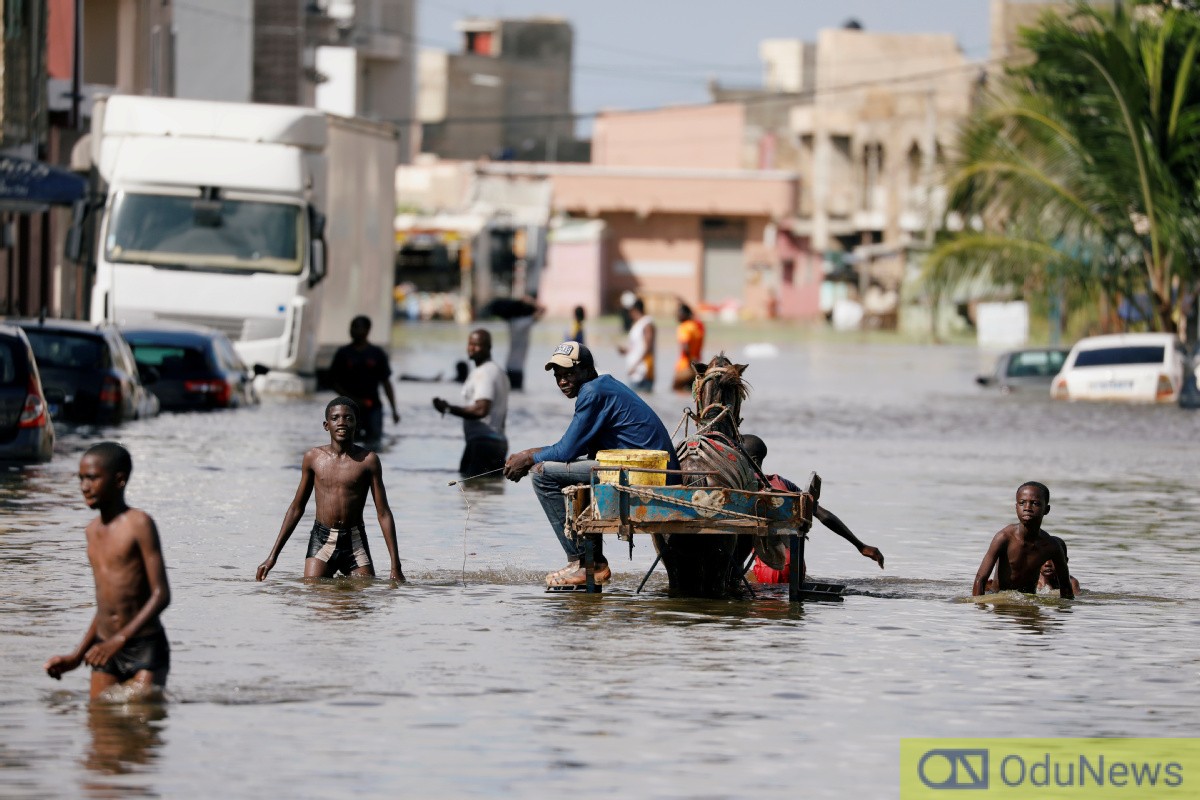African countries lose between 5% and 15% of their Gross Domestic Product per capita growth to climate change annually, OduNews reports.

The Group Acting Chief Economist and Vice President, African Development Bank (AfDB), Mr Kevin Urama, stated this in a statement on Tuesday.
Urama stated that for Africa to fulfil its nationally decided commitments, 1.6 trillion dollars will be required between 2022 and 2030.
Urama said, “Africa has been losing from 5 to 15% of its GDP per capita growth because of climate change and its related impacts, but needs about $1.6 trillion between 2022 and 2030 to meet its national determination contributions.
“Collectively, African countries received only $18.3 billion in climate finance between 2016 and 2019.
“This results in a climate finance gap of up $1288.2 billion annually from 2020 to 2030.”
The necessity for the international community to fulfil its $100 billion pledge to assist developing nations and the African economy in reducing the effects of climate change and adapting to it was emphasized by Urama.
The chief economist added: “These sums reflect how the crisis is. Climate change affects Africa severely, while the continent contributes to only 3% of global emissions. The global community must meet its $100 billion commitment to help developing countries and African economies to mitigate the impacts of climate change and to adapt to it. Investing in climate adaptation in the context of sustainable development is the best way to cope with the climate change impacts, adding that gas must remain included in the continent’s plan for the gradual transition to clean energy.”
Urama emphasized that since the 1850s, nations have been able to move away from coal and toward greener forms of energy. Additionally, he reaffirmed that the private sector, particularly banks, could take advantage of the enormous potential for green investment opportunities in Africa.
Yasmine Fouad, Egypt’s Minister of the Environment, emphasized that Government can not work in isolation.
Fouad added: “To fight climate change, you cannot rely on the government alone, nor the private sector alone but it’s an integration between the government, civil society and the private sector.”
Ghada Wally, Executive Director of the United Nations Office on Drugs and Crime and Director-General of the United Nations Office in Vienna said: “Women and young people, are among Africa’s best assets and stressed the importance of exploring avenues to tap into this significant asset for the sake of the continent’s sustainable development.”


Comments are closed.